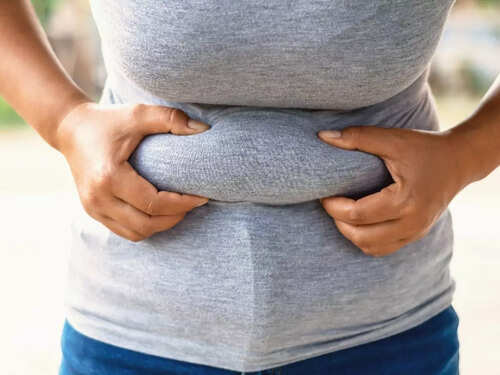The truth about fat and bloating and their causes.
The truth about fat and bloating and their causes.
Blog Article
Checking Out the Distinction Between Bloating and Fat: Necessary Insights for Better Digestive Health
Comprehending the difference between bloating and body fat is vital for individuals seeking to boost their digestive health. While bloating is frequently a transient problem connected to dietary practices, body fat stands for an extra stable aspect affected by lasting lifestyle choices. Acknowledging these distinctions not just help in effective management of digestion discomfort but also notifies approaches for healthy and balanced weight maintenance. As we discover these important understandings, one need to take into consideration exactly how resolving these concerns can lead to significant enhancements in general wellness and high quality of life.
Understanding Bloating

Furthermore, bloating can be exacerbated by problems such as irritable digestive tract syndrome (IBS) or food intolerances, where the digestion system has a hard time to refine specific materials efficiently. Consuming as well swiftly, taking in carbonated drinks, or over-eating can additionally set off bloating by increasing the volume of gas and food within the belly and intestines.
Stress and hormonal adjustments can influence digestive tract mobility and contribute to bloating. Acknowledging the triggers details to an individual's way of life and diet regimen is necessary for managing this condition. Generally, understanding the multifaceted root causes of bloating is essential for developing efficient approaches to reduce discomfort and enhance digestive health.
What Is Body Fat?
Composed mostly of adipocytes, or fat cells, body fat plays an essential duty in keeping total health. It is categorized right into 2 key kinds: subcutaneous fat, situated simply under the skin, and natural fat, which surrounds internal organs.
Along with energy storage, body fat is essential to hormone regulation, insulation, and protection of vital organs - fat and bloating. It works as a reservoir for fat-soluble vitamins, such as A, D, E, and K, facilitating their absorption and metabolic usage. Adipose cells is metabolically energetic, creating hormones like leptin and adiponectin, which are entailed in hunger guideline and insulin sensitivity.

Body fat additionally plays a function in thermoregulation, helping to keep body temperature level. While some amount of body fat is essential for wellness, extreme build-up can result in conditions such as excessive weight, diabetes, and cardio disease. Recognizing the complexities of body fat is crucial for promoting far better health and wellness and preventing illness, emphasizing the value of balanced body structure.
Key Distinctions In Between Bloating and Fat
Typically misconstrued, bloating and body fat are two distinctive conditions that can impact a person's appearance and comfort. Bloating describes an awkward swelling in the abdominal location brought on by too much gas or fluid retention, causing a momentary rise in dimension. This condition can rise and fall throughout the day, commonly linked to nutritional options or digestive concerns, and is characterized by feelings of volume or stress.
On the other hand, body fat is a stable element of body make-up, standing for stored energy and playing a vital duty in various physiological functions. Unlike bloating, body fat does not usually rise and fall swiftly and is influenced by long-term dietary practices, task degrees, and metabolic aspects. It gathers over time, original site adding to overall physique and health and wellness.
Additionally, while bloating can create pain and may be minimized with dietary adjustments or way of living adjustments, body fat decrease typically requires a more long term dedication to diet plan and workout - fat and bloating. Recognizing these differences is crucial for recognizing one's body and managing health properly, as each problem necessitates distinctive techniques for enhancement and alleviation
Reasons of Bloating
Bloating can develop from a variety of underlying variables, each adding to the awkward feeling of fullness and stomach swelling. One primary reason is the ingestion of air, which can occur while consuming or consuming too rapidly. This excessive air can gather in the digestion system, causing pain.
Additionally, certain foods are well-known for causing bloating, especially those high in fiber, such as beans, lentils, and cruciferous veggies. These foods can result in enhanced gas manufacturing throughout digestion. Lactose intolerance is one more significant contributor, as people lacking the enzyme lactase might experience bloating after eating dairy items.
Furthermore, sweetening agents, particularly sugar basics alcohols, can visit interrupt intestine function and trigger bloating. Stomach disorders, such as cranky digestive tract syndrome (IBS) and celiac illness, can additionally manifest as bloating because of damaged food digestion or inflammation.
Hormonal changes, specifically throughout menstruation, can lead to short-term bloating. Anxiety and anxiousness can exacerbate digestion concerns, further adding to the feeling of bloating. Comprehending these reasons is vital in addressing and easing this usual pain.
Tips for Taking Care Of Digestive Health
Resolving the aspects that contribute to bloating is just the start of advertising better gastrointestinal health. Foods such as fruits, veggies, and whole grains promote normal bowel movements and lower the probability of irregularity, an usual trigger for bloating.
Hydration plays a critical function as well; adequate water intake helps the gastrointestinal system function ideally and can ease bloating. fat and bloating. Furthermore, exercising mindful consuming-- such as chewing food thoroughly and eating gradually-- can help in digestion and lessen air swallowing, which commonly intensifies bloating

Finally, integrating probiotics into your regimen, whether through supplements or fermented foods, can cultivate a healthy intestine microbiome, even more sustaining digestion processes. By accepting these strategies, individuals can attain a more balanced and comfy digestive experience.

Conclusion
In final thought, differentiating between bloating and body fat is essential for optimizing digestive wellness and total health. Bloating, commonly a momentary condition linked to nutritional selections, contrasts with body fat, which shows long-term lifestyle behaviors.
Report this page